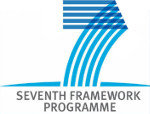Differences in energy balance-related behaviours in European preschool children: The ToyBox-study
De Craemer, M. ; Lateva, M. ; Iotova, V. ; De Decker, E. ; Verloigne, M. ; De Bourdeaudhuij, I. ; Androutsos, O. ; Socha, P. ; Kulaga, Z. ; Moreno, L. (Universidad de Zaragoza) ; Koletzko, B. ; Manios, Y. ; Cardon, G. ; Paw, M.C.A. ; Summerbell, C. ; Lobstein, T. ; Annemans, L. ; Buijs, G. ; Reilly, J. ; Swinburn, B. ; Ward, D. ; Grammatikaki, E. ; Katsarou, C. ; Apostolidou, E. ; Efstathopoulou, E. ; Duvinage, K. ; Ibrügger, S. ; Strauß, A. ; Herbert, B. ; Birnbaum, J. ; Payr, A. ; Geyer, C. ; De Henauw, S. ; Maes, L. ; Vereecken, C. ; Van Assche, J. ; Pil, L. ; Te Velde, S. ; Mouratidou, T. ; Fernandez, J. ; Mesana, M. ; De Miguel-Etayo, P. ; González, E. ; Gracia-Marco, L. ; Oves, B. ; Yngve, A. ; Kugelberg, S. ; Lynch, C. ; Mosdøl, A. ; Moore, H. ; Douthwaite, W. ; Nixon, C. ; Kreichauf, S. ; Wildgruber, A. ; Zych, K. ; Gózdz, M. ; Gurzkowska, B. ; Szott, K. ; Usheva, N. ; Galcheva, S. ; Marinova, V. ; Radkova, Z. ; Feschieva, N. ; Aikenhead, A. ; Dorgelo, A. ; Nethe, A. ; Jansen, J. ; Gmeiner, O. ; Retterath, J. ; Wildeis, J. ; Günthersberger, A. ; Gibson, L. ; Voegele, C.
Resumen: Background: The aim of the current study was to compare levels of energy balance-related behaviours (physical activity, sedentary behaviour, and dietary behaviours (more specifically water consumption, sugar-sweetened beverage consumption and unhealthy snacking)) in four- to six-year-old preschoolers from six European countries (Belgium, Bulgaria, Germany, Greece, Poland, and Spain) within the ToyBox cross-sectional study. Methods: A sample of 4,045 preschoolers (4.77 ± 0.43 years; 52.2% boys) had valid physical activity data (steps per day), parents of 8,117 preschoolers (4.78 ± 0.46 years; 53.0% boys) completed a parental questionnaire with questions on sedentary behaviours (television viewing, computer use, and quiet play), and parents of 7,244 preschoolers (4.77 ± 0.44 years; 52.0% boys) completed a food frequency questionnaire with questions on water consumption, sugar-sweetened beverage consumption and unhealthy snacking. Results: The highest levels of physical activity were found in Spain (12,669 steps/day on weekdays), while the lowest levels were found in Bulgaria and Greece (9,777 and 9,656 steps/day on weekdays, respectively). German preschoolers spent the least amount of time in television viewing (43.3 min/day on weekdays), while Greek preschoolers spent the most time in television viewing (88.5 min/day on weekdays). A considerable amount of time was spent in quiet play in all countries, with the highest levels in Poland (104.9 min/day on weekdays), and the lowest levels in Spain (60.4 min/day on weekdays). Belgian, German, and Polish preschoolers had the lowest intakes of water and the highest intakes of sugar-sweetened beverages. The intake of snacks was the highest in Belgian preschoolers (73.1 g/day) and the lowest in Greek preschoolers (53.3 g/day). Conclusions: Across six European countries, differences in preschoolers'' energy balance-related behaviours were found. Future interventions should target European preschoolers '' energy balance- related behaviours simultaneously, but should apply country-specific adaptations.
Idioma: Inglés
DOI: 10.1371/journal.pone.0118303
Año: 2015
Publicado en: PloS one 10, 3 (2015), 0118303 [16 p.]
ISSN: 1932-6203
Factor impacto JCR: 3.057 (2015)
Categ. JCR: MULTIDISCIPLINARY SCIENCES rank: 11 / 62 = 0.177 (2015) - Q1 - T1
Factor impacto SCIMAGO: 1.427 - Agricultural and Biological Sciences (miscellaneous) (Q1) - Medicine (miscellaneous) (Q1) - Biochemistry, Genetics and Molecular Biology (miscellaneous) (Q1)
Financiación: info:eu-repo/grantAgreement/EC/FP7/245200/EU/Multifactorial evidence based approach using behavioural models in understanding and promoting fun, healthy food, play and policy for the prevention of obesity in early childhood: ToyBox/TOYBOX
Tipo y forma: Artículo (Versión definitiva)
Área (Departamento): Área Enfermería (Dpto. Fisiatría y Enfermería)
 Debe reconocer adecuadamente la autoría, proporcionar un enlace a la licencia e indicar si se han realizado cambios. Puede hacerlo de cualquier manera razonable, pero no de una manera que sugiera que tiene el apoyo del licenciador o lo recibe por el uso que hace.
Debe reconocer adecuadamente la autoría, proporcionar un enlace a la licencia e indicar si se han realizado cambios. Puede hacerlo de cualquier manera razonable, pero no de una manera que sugiera que tiene el apoyo del licenciador o lo recibe por el uso que hace.
Exportado de SIDERAL (2021-01-21-11:00:44)
Visitas y descargas
Idioma: Inglés
DOI: 10.1371/journal.pone.0118303
Año: 2015
Publicado en: PloS one 10, 3 (2015), 0118303 [16 p.]
ISSN: 1932-6203
Factor impacto JCR: 3.057 (2015)
Categ. JCR: MULTIDISCIPLINARY SCIENCES rank: 11 / 62 = 0.177 (2015) - Q1 - T1
Factor impacto SCIMAGO: 1.427 - Agricultural and Biological Sciences (miscellaneous) (Q1) - Medicine (miscellaneous) (Q1) - Biochemistry, Genetics and Molecular Biology (miscellaneous) (Q1)
Financiación: info:eu-repo/grantAgreement/EC/FP7/245200/EU/Multifactorial evidence based approach using behavioural models in understanding and promoting fun, healthy food, play and policy for the prevention of obesity in early childhood: ToyBox/TOYBOX
Tipo y forma: Artículo (Versión definitiva)
Área (Departamento): Área Enfermería (Dpto. Fisiatría y Enfermería)
Exportado de SIDERAL (2021-01-21-11:00:44)
Enlace permanente:
Visitas y descargas
Este artículo se encuentra en las siguientes colecciones:
Artículos
Registro creado el 2016-03-16, última modificación el 2021-01-21
